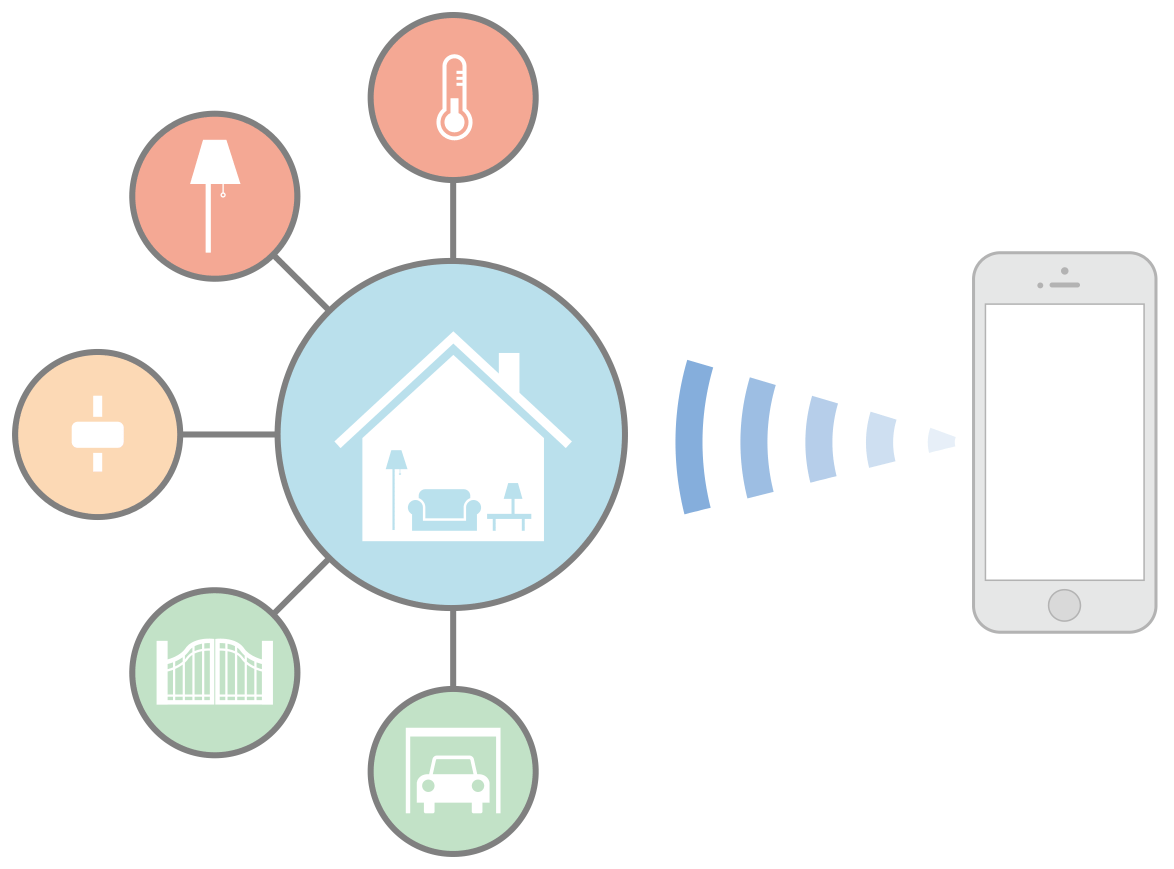More than Half US Homes to be Smart by 2021
The IOT (Internet Of Things) is key to homes becoming smarter in the future, these networked appliances offer a much more affordable, plug and play, home automation ecosystem than last generation control systems. New research estimates that within just 4 years smart home technology will be present in over 73 million US homes, that's 55 percent of all homes. Simple to add technologies from Philips (Hue), Amazon (Alexa), Google (Home) and Apple (HomeKit) are making it a breeze to automate homes with voice control.
"According to fresh analysis by market research firm Berg Insight, the number of smart homes in the U.S is expected to reach 73 million by 2021, which represents around 55 percent of all homes. In it’s latest report, Berg Insight said that the current install base of smart homes in Europe and North America is roughly 30.3 million, as of 2016.
The U.S. is considered “the world’s most advanced smart home market” as the region accounts for more than two-thirds of that number. Berg Insight’s report shows that the U.S. had an install base of nearly 22 million last year, which was a 47 percent year-over-year growth.It’s that strong growth that Berg expects to continue, driving the increase in smart homes over the next few years.
“2017 is anticipated to be a good year for smart home technology as entry-level smart home systems have become affordable for the mass market, at the same time as the reliability and features have improved significantly,” Anders Frick, Senior Analyst at Berg Insight, said in a statement. While the U.S. smart home market has taken off in the past year, the European market is still lagging behind, according to the Berg Insight report. Just 8.5 million homes in Europe were considered smart homes last year. That number is expected to reach some 80.6 million by 2021—a greater number of homes than in the U.S., but that would represent just 36 percent of all homes in Europe.
According to Berg, the most successful products on the smart home market include thermostats, security systems, smart light bulbs, network cameras, and multi-room audio systems. And the most commonly bought products are produced by a handful of companies that include IKEA, Philips Lighting, Honeywell, Belkin, Nest, Ecobee, Comfy, Sonos, Canary, Netatmo, and D-Link.
Consumers that seek out comprehensive whole-home smart home systems with a mix of energy, security, and communications services turn to service providers like Vivint, ADT, Comcast, Control4, and AT&T in the American market. Overseas, names like Verisure, eQ-3, RWE, Deutsche Telekom, and Loxone control the market.
The Role of Voice Control
Berg Insight’s Frick said that voice control platforms have helped speed up the proliferation of the smart home. Services like Amazon’s Alexa and Google’s Home have introduced consumers to the idea of the simple smart home through platforms that are equally as simple to set up. Those products, as Berg pointed out, have quickly risen in popularity.
And now, other tech giants like Apple and Microsoft are getting into the smart speaker game with products that tie into different smart home platforms, offering consumers ways to control their products with their voices.
Berg Insight said it anticipates that the popularity of voice enabled speakers will continue to increase and that smart speakers will “be one of the most significant user interfaces in the home environment.”
“Amazon is still the leading player but Google’s and Apple’s ecosystems are stronger, at least outside North America,” Frick said.
The products by the big four tech giants only scratch the surface of the smart speaker market. There are tons of other options out there, some of which rely on the same voice assistants that have already been mentioned. That list includes a recently-announced Lenovo voice assistant, Japan-based LINE Corp’s WAVE with the Clova virtual assistant, Mark 1 from Mycroft, Inee Voice, Invoxia’s Triby, JAM Voice, Cubic, Fabriq, and Zettaly Avy—to name a few."
http://www.dealerscope.com/article/half-u-s-homes-will-smart-homes-2021/







